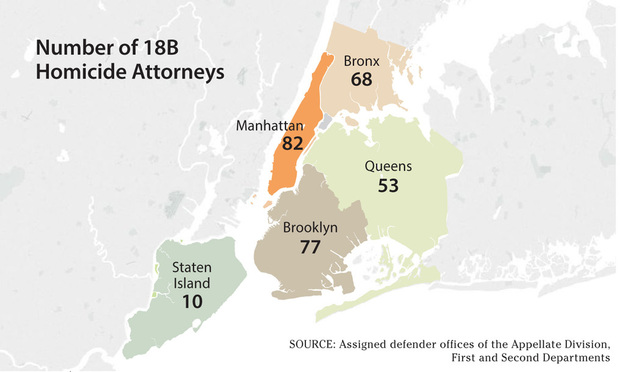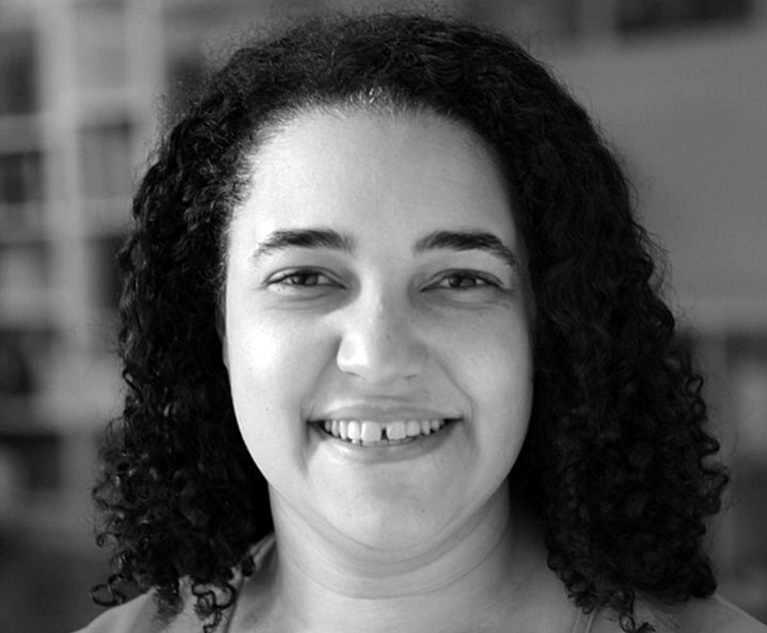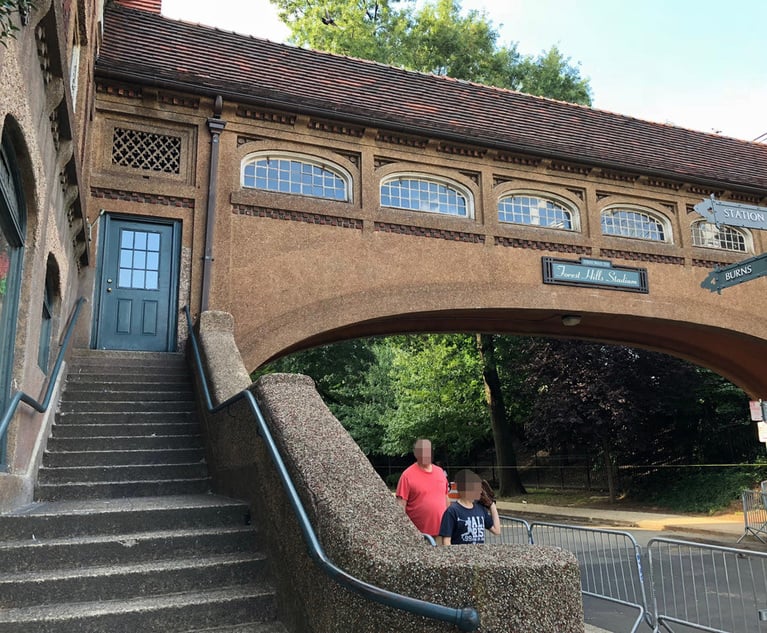Starting next year, New York City public defender organizations will get priority over homicide cases against low-income defendants, a shift from a system in which homicide work was mostly sent to veteran defense attorneys working on assigned counsel, or 18-B, panels.
Currently homicide cases are first sent to 18-B attorneys and defender organizations such as the Legal Aid Society were brought in when conflicts arise. After years of talks, that model is set to be reversed.


 18-B homicide attorneys
18-B homicide attorneys





